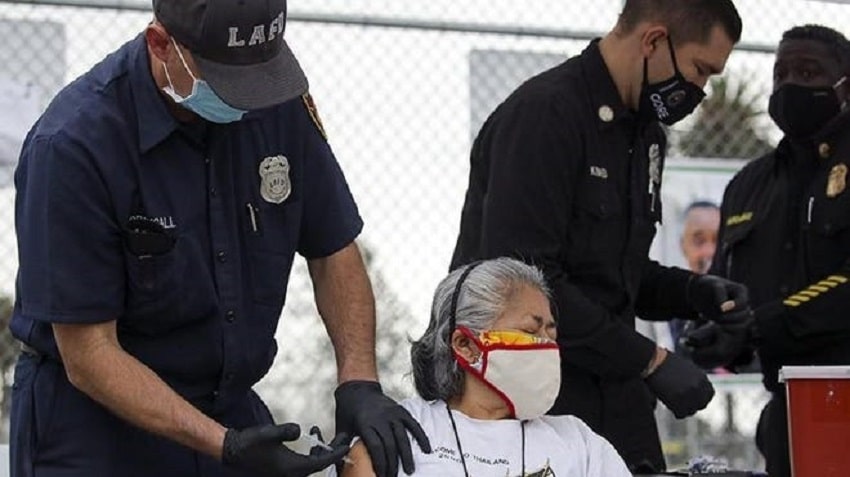Six recent reports claim that people who’ve already come lower with COVID-19 may not want to get another vaccine dose.

The us government hasn’t altered its recommendation for any second dose, but studies that consider the immune response reveal that while an initial shot gives people who’ve retrieved from COVID-19 an enormous boost, the 2nd shot makes little difference.
“I believe which makes sense,” stated Dr. Paul Offit, director from the Vaccine Education Center at Children’s Hospital of Philadelphia.
For somebody who’d COVID-19, the very first shot is sort of a COVID-19-naive person obtaining a booster – they can possess the negative effects of somebody obtaining a second vaccine dose, he stated.
“You can argue reasonably that individuals who are able to prove these were infected – i.e., have antibodies towards the virus – could reasonably just acquire one dose,” Offit stated.
There is no danger to get another shot, for somebody who’s had COVID-19, stated Florian Krammer, who brought among the recent reports. But it might not provide any benefit for that some time and stress it requires to create a reservation, get back and forth from a vaccination site watching the needle use.
And each individual who does not require a second shot means an initial shot for another person.
The task is going to be identifying who does not need that second dose, he yet others stated.
“Implementation may not be that simple,” stated Krammer, a professor of microbiology in the Icahn Med school at Mount Sinai in New You are able to City.
Anybody who received a proper proper diagnosis of COVID-19 – not only individuals who felt lousy for any couple of days and presumed they’d been with them – or those who have antibodies towards the virus that triggers COVID-19 could presumably skip another shot.
Last spring, antibody tests weren’t always reliable, Krammer stated, however the ones still available on the market now are great, climax still not obvious if your particular degree of antibody is required to be protected.
Antibody tests, also referred to as serology tests, identify proteins produced by the defense mechanisms as a result of contamination.
Based on Krammer’s study, published at the outset of the month although not yet peer reviewed, a formerly infected individual who will get their first shot includes a similar immune response as somebody who has not had COVID-19 getting their second. They can possess the negative effects of the second shot using their first shot.
Which second shot adds little extra protection, the research found.
“Altering the insurance policy to provide these people just one dose of vaccine wouldn’t negatively effect on their antibody titers, spare them from unnecessary discomfort and release many urgently needed vaccine doses,” it concluded.
Dr. Francis Collins, director from the National Institutes of Health, authored concerning the study in the weekly blog.
“While a lot more scientific studies are needed – and i’m certainly not suggesting a general change in the present recommendations at this time – the outcomes raise the chance that one dose may be enough for somebody who’s been have contracted SARS-CoV-2 and already generated antibodies from the virus,” Collins authored.
“But any serious thought of the option will need more data. It will likewise depend on the ea’s at Food and drug administration and Cdc and Prevention (CDC) to determine,” he added.
Just how much more data or which kind of information could be enough to convince regulators is not obvious.
More:Why get COVID-19 vaccination if you’ve still got to put on a mask? It beats getting sick, health professionals say
Another from the new studies, a preprint in the College of Maryland, demonstrated that 41 healthcare workers who retrieved from COVID-19 had more antibodies after their first shot than 69 of the peers who had not caught herpes had after their second.
Along with a preprint in the Fred Hutchinson Cancer Research Center in San antonio discovered that bloodstream from individuals who retrieved from COVID-19 wasn’t nearly as good at neutralizing the initial virus or even the variant that originated in Nigeria as bloodstream from individuals who had retrieved and were vaccinated. Three other studies had similar findings.
Each one of the six studies openly released this month compares the issue in different ways, but “they essentially all show exactly the same factor,” Krammer stated, “They’re confirming one another.”
Health insurance and patient safety coverage at USA TODAY is created possible partly with a grant in the Masimo Foundation for Ethics, Innovation and Competition in Healthcare. The Masimo Foundation doesn’t provide editorial input.
